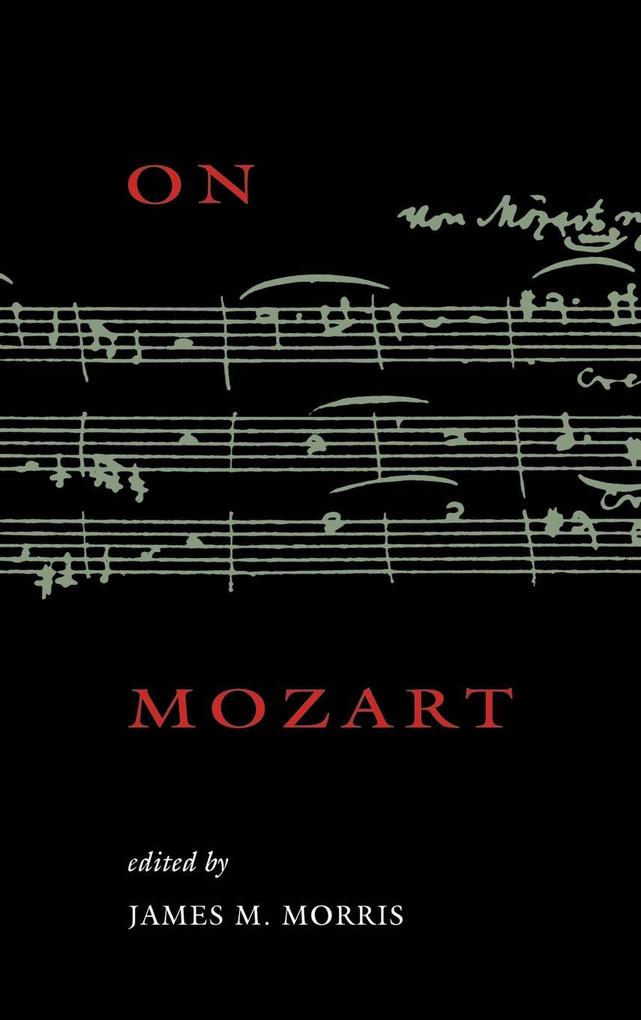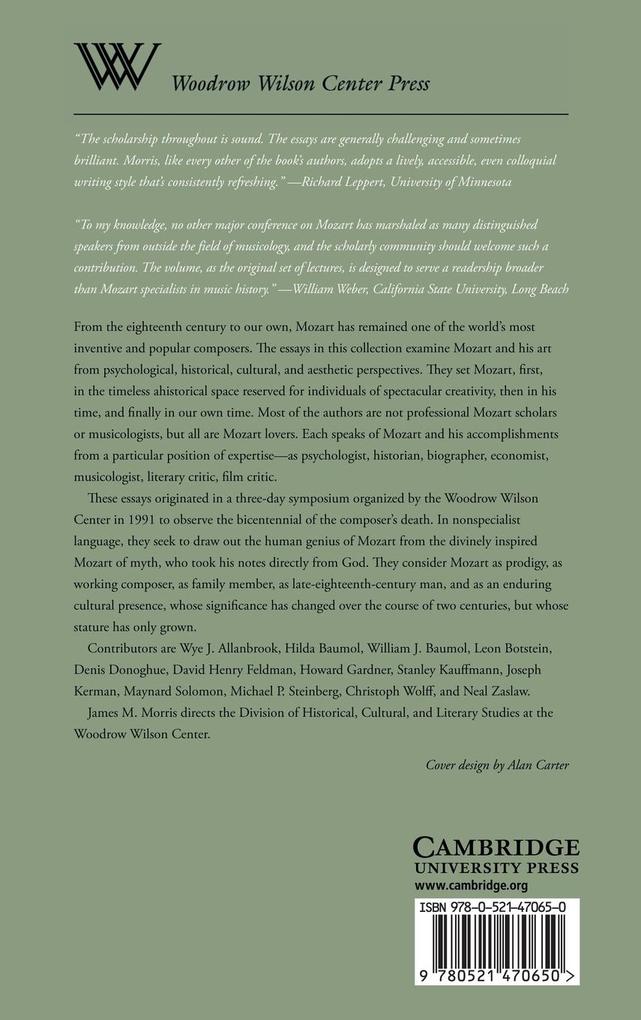From the eighteenth century to our own, Mozart has remained one of the world's most inventive and popular composers. The essays in this collection examine Mozart and his art from psychological, historical, cultural, and aesthetic perspectives. They set Mozart, first, in the timeless ahistorical space reserved for individuals of spectacular creativity, then in his time, and finally in our own time. Most of the authors are not professional Mozart scholars or musicologists, but all are Mozart lovers. Each speaks of Mozart and his accomplishments from a particular position of expertise - as psychologist, historian, biographer, economist, musicologist, literary critic, film critic. These essays originated in a three-day symposium organized by the Woodrow Wilson Center in 1991 to observe the bicentennial of the composer's death. In nonspecialist language, they seek to draw out the human genius of Mozart from the divinely inspired Mozart of myth, who took his notes directly from God. They consider Mozart as prodigy, as working composer, as family member, as late-eighteenth-century man, and as an enduring cultural presence, whose significance has changed over the course of two centuries, but whose stature has only grown.
Inhaltsverzeichnis
Introduction; 1. Approaching Mozart Denis Donoghe; 2. How extraordinary was Mozart? Howard Gardner; 3. Mozart and the transformational imperative David Henry Feldman; 4. On the economics of musical composition in Mozart's Vienna William J. Baumol and Hilda Baumol; 5. Mozart as a working stiff Neal Zaslow; 6. The challenge of blank paper: Mozart the composer Christoph Wolff; 7. Marianne Mozart Carissima Sorella Mia Maynard Solomon; 8. Mozart's concertos and their audience Joseph Kerman; 9. Mozart's tunes and the comedy of closure Wye J. Allanbrook; 10. Don Giovanni against the Baroque or the culture punished Michael P. Steinberg; 11. Nineteenth-century Mozart: the fin-de-siecle Mozart revival Leon Botstein; 12. The abduction from the theater: Mozart opera on film Stanley Kauffmann.











